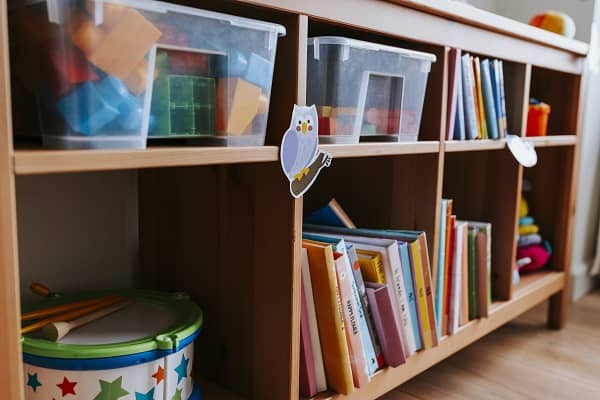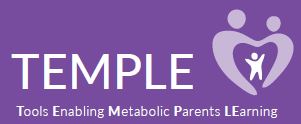
When your child has a metabolic disorder, the idea of daycare can feel stressful and overwhelming. Rest assured that young children with metabolic disorders go to daycare every day and receive excellent care! A child with a special diet is nothing new to daycare centers nowadays. Daycares typically have protocols in place to ensure your child’s dietary plan is followed properly. When you start looking for a daycare, ask the staff how they manage special medical needs and special diets. With planning, teamwork, and good communication with the daycare staff, your child can receive the low protein diet and formula they need.

Useful Tips:
Explain your child’s disorder. Helping the staff understand the reason behind your child’s dietary needs underlines how important they are. The staff will see why your directions are so specific and must be followed closely. Nutricia’s TEMPLE videos are a great tool to help educate your child’s teachers/aides.
Provide clear, typed directions. Create a 1-page print-out that clearly explains the what, how and when of your child’s formula, meal and snack routine. Put the directions in a clear sheet protector so they don’t get damaged. Make one copy for the daycare staff and another copy to keep with your child’s bag.
“If in doubt, call me.” Make it clear to the staff that if they are ever unsure about anything related to your child’s diet, formula, or care, they should call you. Ensure they have all your contact information and at least two emergency contacts in case they cannot reach you.
Managing formula at daycare
Daycare centers that care for infants are used to giving bottles and keeping a record of when and how much each baby drinks. Many daycare centers require that parents bring the bottles already prepared for the day. The only difference for a child with a metabolic disorder is what’s inside the bottle! Be sure to explain the importance of accurate record-keeping for your child’s formula intake. Once your child transitions from a bottle to a cup, you can modify your instructions for giving formula accordingly.
TIP: If the daycare allows it, keep an extra can of your child’s metabolic formula at the center. This way, your child will have formula in case the prepared formula is spilled, or your child is still hungry after finishing the prepared bottles.
Managing snacks & meals at daycare

If you will provide the food: Ask your child’s teacher/aide to monitor and record how much your child eats so you can determine how much protein they consumed.
TIP: It may be easiest to have the teacher/aide send home the food that is left over from meals and snacks. As long as you’ve recorded what you sent that day, you will be able to determine what your child ate based on what’s left behind.
If the daycare provides the food: Sit down with the kitchen manager to review which foods/dishes offered are acceptable for your child’s diet and which are not. This can help you determine if you will need to provide additional food. Be sure to come to a clear agreement about what the daycare will offer your child and how much they can give.
Make sure that more than one staff member understands your child’s diet and formula instructions. If your child’s primary teacher/aide is sick or on vacation, it’s important that someone else on staff has a good understanding of how to meet your child’s needs.
The information in this blog is not meant to replace professional medical advice, always consult your metabolic healthcare professional before making any changes to the management of your child’s disorder.
© 2021 Nutricia North America
